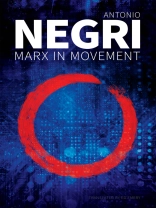This first volume in a new trilogy of books by Antonio Negri examines and develops the Italian tradition of radical Marxist thought known as operaismo or ‘autonomist Marxism’ – the tradition to which Negri himself adheres and in which he is a leading figure.
The tradition of operaismo emphasizes the role of the worker in capitalism and the primacy of class struggle. Within this framework, Negri’s key contribution has been to theorize the transition from the ‘mass worker’ to the ‘social worker’ – that is, to broaden the concept of living labour and liberate it from the theoretical cages that locked it into the factory. It was only by moving beyond the ideology and political practice of the mass worker that the revolutionary character of the Marxist concept of class could be updated for our times and developed in relation to the exploitation and socialization of living labour, including networks of cognitive work, reproductive work and care work, networks which also have the potential to become the bases for new forms of resistance to capitalist exploitation.
By bringing together Negri’s key contributions to the reconceptualization of the worker and class struggle, this volume demonstrates the vitality of the Marxist tradition of operaismo and its continued relevance for understanding the key social and political struggles of our time.
Tabella dei contenuti
Introduction
Part 1: From the mass worker to the social worker
Chapter 1. Archaeology and project. The mass worker and the social worker
Chapter 2. On recent trends in the communist theory of the state: a critical review
Chapter 3. Labour-value: crisis and problems of reconstruction in postmodernity
Part 2: Workers and capital today
Chapter 4. Marx and labour: the path to disutopia
Chapter 5. The capital-labour relationship in cognitive capitalism
Chapter 6. The organic composition of capital today
Chapter 7. General intellect and the social individual in Marx’s Grundrisse
Part 3: Polemical considerations
Chapter 8. Operai e capitale 50 years on: what has happened in the working class since Marx?
Chapter 9. On Tronti’s autonomy of the political
Chapter 10. Post-operaismo? No, just operaismo!
Notes
Circa l’autore
Antonio Negri is formerly Professor of State Theory at the University of Padua.












